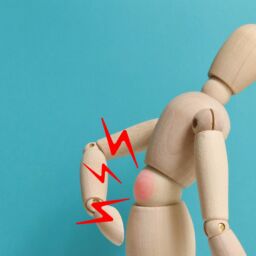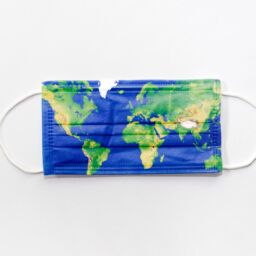
Coping Mechanisms for Everyday Life
by- Jordan McGlamry
When life becomes too stressful and overwhelming, we must all remember to take a step back and “Breathe Life”. Sometimes, even doing the simplest task like washing dishes can zap our energy. When a stressful time appears, it can be helpful to determine a game plan for the best way to tackle the situation at hand. Some coping methods, like breathing exercises, listening to music, and creating a to-do list, will benefit your daily life and even your health. When handling a stressful situation, a person might try to push through a project but may not consider that this might be more detrimental in the long run. It is always better to take a step back and use a different method to cope.
Perform breathing exercises
A common and useful breathing technique to stay grounded in times of stress is called Box Breath. Breathe in for four counts, hold for four counts, and slowly breathe out over eight counts. “The biggest benefit of box breathing is relaxation, especially in times of stress. Studies show that regulating your breath can lower levels of the stress hormone cortisol and maybe even help lower blood pressure” (Cleveland Clinic, 2021). When trying to sleep, follow a rectangle, like a window, with your eyes as you breathe–breathing in while following the long sides, and out while following the short sides.
Listen to music
Singing or playing your favorite music activates dopamine in the brain and brings a sense of joy. Listening to music can have many benefits to your mental health, such as “releasing endorphins and improving our sense of well being” (Collins, 2021). Different types of music can also help with concentration. According to scientists who presented at Stanford University’s 2006 symposium, “music with a strong beat stimulates the brain” (Saarman, 2006). Their research also concluded that “faster beats may encourage more alert and concentrated thinking” (Saarman, 2006).
Create a to-do list
No task is too small to write down. In fact, smaller tasks may even help with productivity. “Microproductivity” is breaking down big projects into smaller components to work on (Boogaard, 2019). Often, when we see a big task in front of us, we don’t know where to begin. By breaking the task into microtasks, we can find a good starting point, and our productivity will begin to flow (Boogaard, 2019). Usually, people use microtasks in business to guide large projects, but we can also use them in our daily lives.
Find enjoyment in making task lists, as well as breaking those tasks into manageable bites. Although this may seem like a silly example, there is purpose to this illustration. Instead of ignoring the dishes until they take over all of your countertops, try creating a task, “do dishes,” and create a subset: “gather all dishware, put dishwasher-safe dishes in the dishwasher, hand wash remaining dishes, and run the dishwasher before bed.” Other tasks for the following day would be, “put away dishes in the sink” and “put away dishes from the dishwasher.” Breaking one big task into smaller tasks allows you to step away between steps and work on other activities so that you don’t feel overwhelmed.
Organize your time
While creating your task list, it may benefit you to block in specific times to work on the tasks that need to be done. There are two ways to think about your schedule: There are times where you need to set aside large amounts of time for high-priority tasks. “This is a task management technique called time-blocking,” (Carter, 2021). Throughout the day, make sure to note times for smaller tasks. “Action items” are tasks that take about 20 minutes, “quick tasks” take about five minutes, and similar tasks can be grouped together. This is called “task-batching, and it creates additional efficiencies” (Carter, 2021). Schedules allow for a longer to-do list to become manageable blocks of various activities throughout the week, rather than an ambiguous amount of tasks to complete.
Reward yourself
Sometimes it is hard to see the positive during times of stress or uncertainty. However, it is during these moments when we need a positive outlook the most. While working on difficult tasks, allow yourself to be proud of what you have accomplished so far. If you have created tasks and subtasks, reward yourself with praise, even if you are not finished with the task overall. Small moments of lifting yourself up can boost your overall mood, and by the time you’ve finished the larger task, there is a sense of pride and accomplishment for a job well done. “Rewarding yourself for your successes, however frequent and small, matters” (Perry, 2022). Now, it is time to reward yourself in another way. When the chores are done, you can sit down and start a new book or show you’ve been interested in. “We all need incentives. Rewards give you a mental break while providing you with an extra bit of momentum to get back to the grind” (Perry, 2022).
Ask for support
When you find yourself overwhelmed, ask for help from a partner, roommate, or friend. Accountability partners can keep you on track and focused, and they can distract you with interesting discussions or music while you both work. Sometimes asking for help can be intimidating or difficult due to insecurities you might have, but in the end other people’s perception of you does not dictate your abilities. This can go a long way in developing confidence (Hasson, 2018).
Changing your expectations and beliefs allows you to let go of the notion that asking for help is embarrassing (Hasson, 2018). Additionally, it will help you see that not everyone can do a job alone. (Hasson, 2018). It is also better to be direct when asking for support (Hasson, 2018). Don’t drop hints, sigh, or look sad when trying to get help (Hasson, 2018). Instead, explain what you need help with, be clear about how and when you need assistance (Hasson, 2018). Whether you need help with walking the dog, cleaning the house, or even washing the dishes, there is nothing wrong with asking for help.
Walk away when you need to
Allow yourself to walk away from the task when it becomes overwhelming, but don’t ignore the task forever. This could be a great moment to reach out to your accountability partner to ensure you return to the task before it becomes a problem again. Step back, take a deep breath, and return when you’re ready.
Focusing on a different task in the meantime can be another healthy coping mechanism. This can often help you to hit the reset button and then return to the other task you started. Let’s say that doing the dishes takes less than 20 minutes, but by breaking it down into microsteps, you can focus and finish in a timely manner. Engage in something you enjoy while doing a task you dislike like listening to music or listening to your favorite podcast in the background.
Wash the dishes
There are many benefits to finding the right coping mechanism. “When circumstances feel overwhelming, our coping mechanisms help us bring them back under control. We do this by either managing the emotions or by trying to fix the problem. The magic of healthy coping mechanisms is that they function as a way to bring us back into homeostasis” (Cooks-Campbell, 2022). Coping mechanisms help us take control of the situation and process it differently. If certain tasks such as doing the laundry or washing the dishes hinder you from continuing your daily life, try these coping mechanisms to assess the situation and approach it in a non-stressful way.
We at ARO are here to support you in your personal healing journey to complete well-being. We bring awareness and education to 13 different types of abuse including Narcissistic, Sexual, Physical, Psychological, Financial, Child, Self, Cyberbullying, Bullying, Spousal, Elderly, Isolation and Workplace, and help others heal and find peace. Please support our efforts by going to GoARO.org to learn how you can make an impact on the Abuse Care Community.
Resources
Boogaard, K. (2019, January 03). What’s microProductivity? The small habit that will lead you to big wins. Trello. https://blog.trello.com/microproductivity-break-tasks-into-smaller-steps
Collins, D. (2021, August 17). The power of music to reduce stress. PsychCentral. https://psychcentral.com/stress/the-power-of-music-to-reduce-stress
Cooks-Campbell, A. (2022, February 22). How coping mechanisms help us manage difficult emotions and situations. BetterUp. https://www.betterup.com/blog/coping-mechanisms#:~:text=When%20circumstances%20feel%20overwhelming%2C%20our,trying%20to%20fix%20the%20problem
Carter, C. (2021, January 26). How to structure your day to feel less stressed. Greater Good Magazine. https://greatergood.berkeley.edu/article/item/how_to_structure_your_day_to_accomplish_more
Hasson, G. (2018, May 07). Why it’s so important to ask for help when you need it. Welldoing.org. https://welldoing.org/article/why-its-so-important-ask-for-help-when-need-it
Perry, E. (2022, February 23). You’ve earned it: Learn about the benefits of rewarding yourself. BetterUp. https://www.betterup.com/blog/reward-yourself
Saarman, E. (2006, May 31). Feeling the beat: Symposium explores the therapeutic effects of rhythmic music. Stanford News. https://news.stanford.edu/news/2006/may31/brainwave-053106.html
Cleveland Clinic. (2021, August 17). How box breathing can help you destress. https://health.clevelandclinic.org/box-breathing-benefits/
















